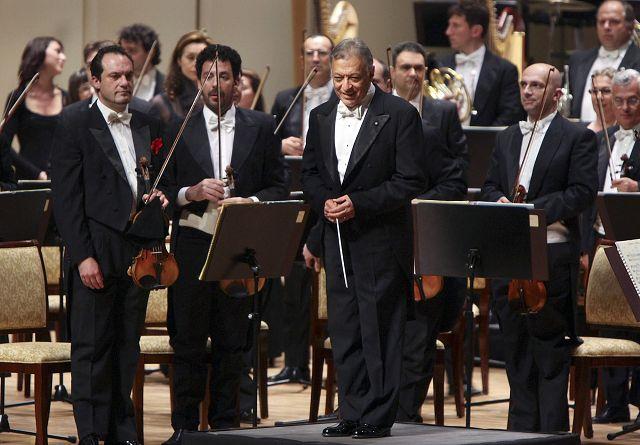Tchaikovsky's final symphony, Symphony Pathétique, probably does not spring into the minds of most people as readily as Swan Lake and The Nutcracker. But this was the symphony, performed for the first time in 1893, just nine days before his untimely death at the age of 53, that made up the first half of the Russian Landscapes concert at Emirates Palace this week. It was performed magnificently by the Italian orchestra of the Maggio Musicale Fiorentino along with its chief conductor, Zubin Mehta.
Despite the tepid reaction of the audience to its first performance in St Petersburg, Tchaikovsky was proud of his last symphony. In a letter written two months before it was published, he noted that he considered it "easily the best - and especially the most 'sincere' of my works". The similarity of the word "pathétique" to its English cousin can be misleading. In its Russian form, it translates more closely to "passionate". Many amateur psychologists have since argued that the symphony is the composer's farewell, ending as it does, unusually, with a sombre drawn-out adagio. His death shortly afterwards is a controversial topic, usually put down to either suicide or an unwise decision to drink unboiled water during a cholera epidemic.
At the performance given this week, one could understand why in its saddest moments it could seem like a final goodbye. Even the first movement was desperately melancholy and opened slowly, with rich, sublime notes from the first violins. Then came the second, more upbeat movement, remarkable for the fact that it is a lively string piece written in 5/4 time. (The only other notable classical work written at such a speed is Mars from Gustav Holst's The Planets.)
It gave way to the third movement, which critics have previously said should be switched with the fourth because it is faster and more triumphant. It is the kind of piece that would befit a royal procession, and had Mehta bouncing up and down on the soles of his feet as he conducted the military-like brass notes and the jittery woodwind. We were then brought back to the brooding tone of the first movement for its finale, with bassoons underlying the mournful sweep of the violins and the final, growling double bass notes. It was a mesmerising performance.
The second half of the evening was similarly poignant, with a rendition of the fellow Russian Modest Mussorgsky's Pictures at an Exhibition. Composed after the death of his close friend, the artist Viktor Hartmann, the piece was inspired by a posthumous exhibition of his work. It is subsequently an "imaginary" viewing of the exhibition, which Mussorgsky wrote as a solo piano suite but which has subsequently been orchestrated, most famously by Maurice Ravel in 1922.
This was the version played this week, with the orchestra first launching into the brisk Promenade as the viewer strolls through the exhibition, before moving on to music that denotes specific paintings. The xylophone was used to illustrate the painting of a clumsy gnome, a beautifully wistful saxophone solo played the part of a troubadour from another painting and harp notes were used to denote a chiming clock in another.
Running at just 30 minutes, it was swept through seamlessly but felt a little too brief for a second half. Mehta quelled the standing ovation. "Ladies and gentlemen, I cannot end without thinking of those in Italy," he announced before his Italian orchestra, referring to the earthquake victims of L'Aquila and its surrounding region. "I'd like to offer a simple piece of little music in their memory." The orchestra then launched into the Italian composer Pietro Mascagni's Intermezzo from Cavalleria Rusticana, a short but soaring and deeply moving piece dominated by the string section.
It was left to Verdi's overture from the Force of Destiny to round off the programme, with soft flute and clarinet solos, which finished with a boisterous clash of cymbals. It was a rousing finish to a highly emotional evening of music.

